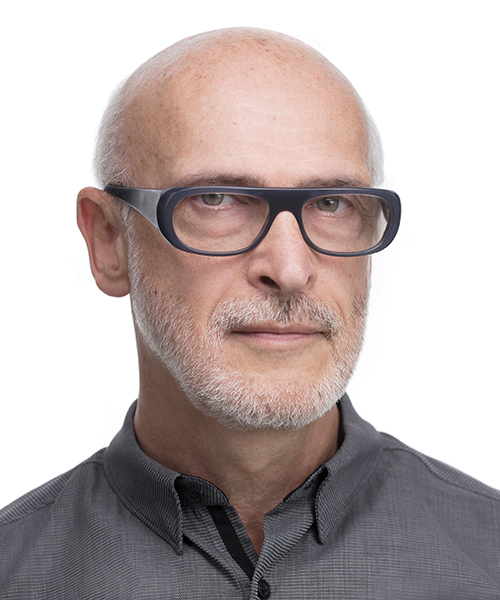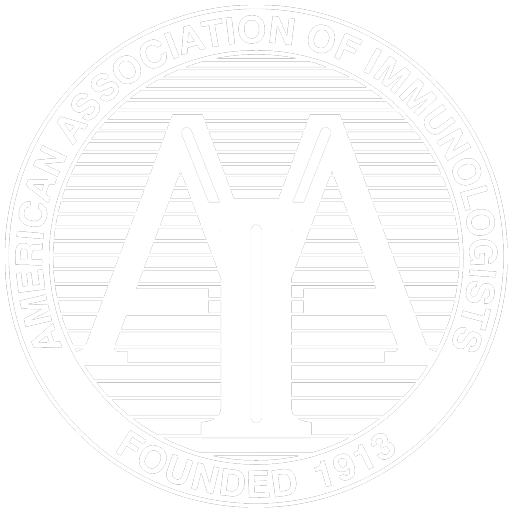HHMI, Mem. Sloan Kettering Cancer Ctr.,
Rockefeller Univ., and Weill Cornell Med.

Alexander Y. Rudensky, Ph.D., HHMI, Memorial Sloan Kettering Cancer Center (MSKCC), Rockefeller University, and Cornell University, is the recipient of the 2020 AAI-Thermo Fisher Meritorious Career Award in recognition of his outstanding research contributions in the area of regulatory T cell biology.
Dr. Rudensky’s early work with Dr. Charles Janeway at Yale University analyzed peptides displayed by MHC class II molecules to elucidate mechanisms of antigen processing and presentation, as well as the recognition of self-antigens by T cells. This cultivated his interest in CD4+ T cell development, and, as an independent investigator, he has established himself as a leader in the field of regulatory T (Treg) cells. His laboratory showed that the transcription factor Foxp3 controls the development and function of Tregs in mice. Single-cell analysis of Foxp3 protein expression in patients with loss-of-function mutations demonstrated that Foxp3 also controls Treg differentiation in humans. These studies further linked Foxp3 deficiency with immune dysregulation and severe autoimmunity.
Rudensky has extensively characterized requirements for Treg cell differentiation and function. He showed that continued Foxp3 expression was required to maintain suppressive function in mature Treg cells. His laboratory performed a genome-wide analysis to identify Foxp3 target genes in Treg development and function. He described a role for microRNAs in Treg cell biology. He also showed that the transcription factor T-bet functions in late-stage specialization of Treg cells, suggesting that Tregs adapt to control different aspects of the immune response.
Rudensky has shown that Treg cells maintain immune homeostasis throughout life and play a role in a variety of processes and pathologies. He demonstrated that Treg cells facilitate early protective responses to local viral infection by coordinating the homing of immune effector cells to the site of infection. He described the role of extrathymic generation of Treg cells in maternal-fetal tolerance. His laboratory has also examined the role of Tregs in cancer, for example, with the demonstration that amphiregulin production by Tregs and other T cells contributes to lung cancer progression in mice. Showing the complex interaction of immune cells with tumors, this role in cancer progression was seemingly unrelated to immune modulation, but instead was due to an effect on tissue repair.
Ming Li, member, Memorial Sloan Kettering Cancer Center, says, “The groundbreaking studies done in Dr. Rudensky’s laboratory have transformed the field of immunology and explained many enigmatic aspects of the immune system. Equally importantly, they have provided critical insights into the mechanisms of many devastating diseases.”
Diane Mathis, Morton Grove-Rasmussen Chair in Immunohematology, Harvard Medical School, adds, “It is important to recognize how generous he has been in always rapidly and widely distributing engineered mice to other investigators (no strings attached), to the enormous benefit of the field as a whole. This point, almost as much as his impressive scientific contributions, argues that the field of Treg biology would have advanced significantly more slowly in his absence.”
Rudensky obtained his Ph.D. in immunology from the Gabrichevsky Institute for Epidemiology and Microbiology in Moscow. Following appointments as a postdoctoral fellow and associate research scientist at Yale University, he moved to the University of Washington as an assistant professor and rose through the faculty ranks to professor by the time of his departure in 2008.
He is currently chairman of the Immunology Program and director of the Ludwig Center for Cancer Immunotherapy at MSKCC; tri-institutional professor at MSKCC, The Rockefeller University and Cornell University; professor at the Gerstner Sloan- Kettering Graduate School; and professor at the Weill Graduate School of Medical Sciences at Cornell University. He also serves as co-chair of the Graduate Program in Immunology and Microbial Pathogenesis at the Weill Graduate School at Cornell.
Rudensky has been affiliated with the Howard Hughes Medical Institute since 1993, first as an assistant investigator and currently as an investigator. He was an extramural member researcher with the Parker Institute for Cancer Immunotherapy from 2016 to 2020.
Rudensky has been honored with the Vilcek Prize in Biomedical Science, the Crafoord Prize from the Royal Swedish Academy of Sciences, the Coley Award in Basic Immunology from the Cancer Research Institute, and the AAI-PharMingen Investigator Award. He is an elected member of the National Academy of Sciences, National Academy of Medicine, and American Academy of Arts and Sciences.
An AAI member since 1994, Rudensky has served AAI as a member of the Awards Committee, a distinguished lecturer, and a major symposium chair and speaker at the AAI annual meeting.

